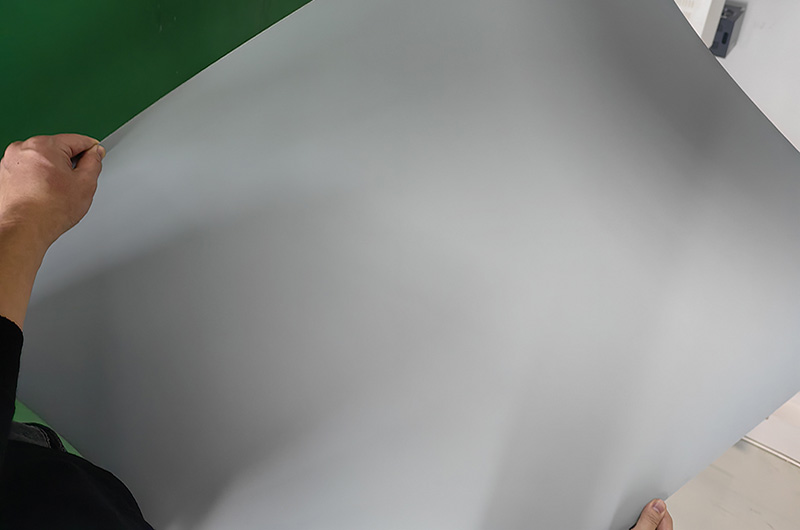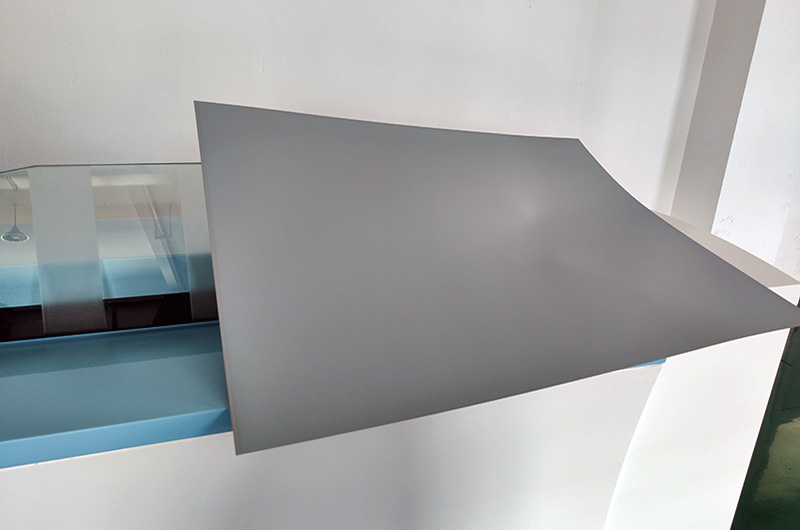Thermal CTP (computer-to-plate) plates, especially the process-free versions, simplify the plate-making process for offset printing.
Thermal CTP Plate (Process-less) production is the simplest printing plate production method.
Process-free thermal CTP plates are thermal printing plates that do not require chemical processing or any post-exposure steps after imaging, such as developing, cleaning, or gluing.
After the plate is imaged in the platesetter, it is installed directly on the press, and the removal of the plate coating is cleverly integrated into the press start-up process. Completely eliminating the need for processors, associated chemicals, energy required for processors, water and waste from plate production.
Process-free CTP plates are in contrast to traditional thermal CTP plates that often require chemical processing.

Processless Thermal CTP Plate does not require special chemical treatment after exposure. It can be printed directly on the machine and will not cause any pollution to the environment or printing equipment. It is a green and environmentally friendly printing material and increases work efficiency.

Process-free thermal CTP plates can be used in a variety of printing applications, including:
In summary, heat-free CTP plates represent a significant advancement in printing technology, offering numerous advantages in terms of environmental impact, workflow efficiency and cost savings. They are an excellent choice for modern printing operations looking to increase productivity and sustainability.
| Model No. | Process-less Thermal CTP Plate |
| Usage | High quality commercial and newspaper printing |
| Style | Negative |
| Spectral Sensitivity | 320-450nm |
| Resolution | 2-99% |
| Thickness | 0.15-0.30mm |
| Colour | Grey |
| Trademark | HAOMEI or customized |
| Specification | 0.15mm 100PCS/box; 0.30mm 50PCS. |
| HS Code | 3701302 |
| Material | Aluminum |
| Type | CTP Plate |
| Long Impression | 60, 000-100, 000 impressions |
| Sizes | Customized Sizes |
| Developer Temperature | 23+/-2 Degree |
| Laser Energy Required | 80-180mj/Cm2 |
| Transport Package | Export Standard Seaworthy Package |
HC Aluminum CTP plates can meet the various needs of high-end commercial color printing and new paper printing. It has the advantages of fast plate making speed, good tolerance, accurate dot reproduction, good ink balance, and long printing run. Processless CTP plates are a new generation of environmentally friendly printing products, suitable for thermal CTP plate making machines. After exposure, it can be printed directly on the machine without any washing steps.
1. Exposure time limit
When using flush-free CTP printing plates, try to avoid prolonged exposure to sunlight.
2. Strict storage requirements
Special wooden boxes are required for storage, and the inside of the wooden box needs to be painted with reflective paint and covered with an embedded lid to avoid light storage.
3. Precautions for loading
During the loading process, try to avoid grabbing directly with your hands, and it is recommended to wear gloves when operating.
4. Precautions for version change
Especially when printing a long version, if dots are lost or the plate needs to be changed during the development process, the flush-free CTP printing plate shows obvious shortcomings. Since the development process relies on fountain solution and the ink roller of the printing machine, changing the plate at this time can easily lead to a large area of dirty plate in the non-inked area (ink on the water roller), which is difficult to deal with and may cause certain losses and inconvenience.
5. Operation precautions
The flush-free CTP printing plate needs to be dampened by a water roller, that is, the water roller is first used to wet the plate for 2 to 3 minutes, and then the ink roller is used to transfer the emulsified adhesive layer to the plate paper to complete the development process. Therefore, printing operators need to change their original operating habits.
The following PS and CTP plate may interest you
Further reading: ctp thermalctp thermal platepositive thermal ctp platethermal ctpthermal ctp machinethermal ctp platethermal ctp systems